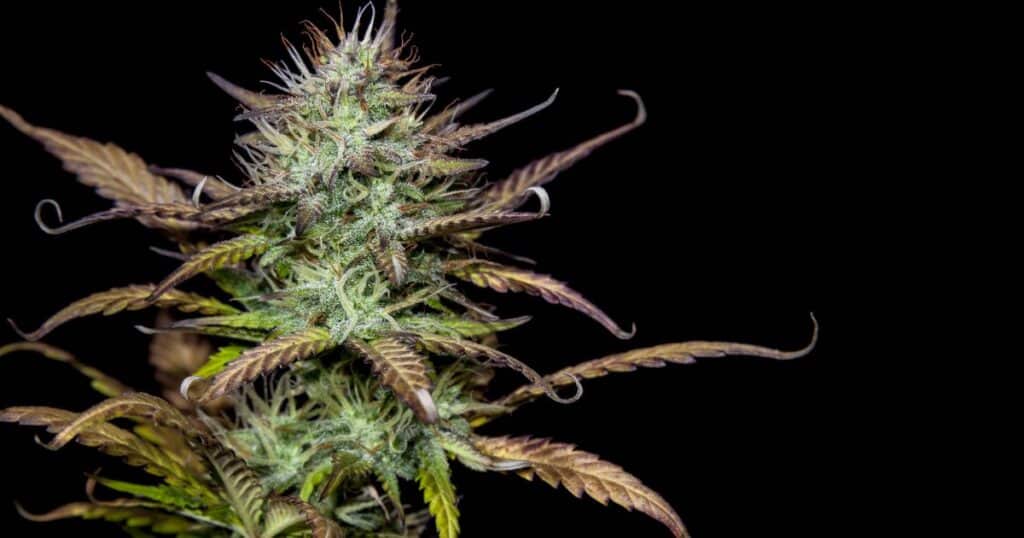In a world where cannabis legalization is spreading rapidly, the conversation surrounding its use, including chronic cannabis use, is evolving. The days when people solely associated cannabis use with negative stigmas and stereotypes are changing.
Today, we’re stepping into an era where in-depth research offers us a clearer, more nuanced understanding of cannabis and its myriad effects on our daily lives. A recent study from researchers at the University of Toronto stands as a testament to this shift, uncovering the emotional, motivational, and self-regulatory effects of frequent cannabis use.

The Study at a Glance
Researchers at the University of Toronto conducted a study titled ‘Chronic Cannabis Use in Everyday Life: Emotional, Motivational, and Self-Regulatory Effects of Frequently Getting High’, surveying 260 chronic cannabis users to explore how regular consumption affects their emotions, motivation, and conscientiousness in everyday scenarios. Splitting the myth from reality, this study sheds light on the actual impact of chronic cannabis use, moving beyond societal prejudice to offer factual insights.
Emotions and Chronic Cannabis Use
Contrary to popular belief, the study shows that chronic cannabis use enhances positive emotions. Users reported feeling higher levels of awe, inspiration, and gratitude while high, alongside reduced stress and fear.
This contradicts the common perception of cannabis inducing paranoia; instead, users experienced an emotional uplift, enriching their daily experiences.
“Not surprisingly, compared with not feeling high, feeling high for chronic users was associated with a host of increased positive emotions such as awe, inspiration, and gratitude, as well as reduced stress and fear at the within-person level.” notes the study.
“Interestingly, getting high was not associated with increased suspicion/paranoia among chronic users, contrary to popular depictions and even medical symptom lists.”
Frequent Use and Motivation
These recent findings also challenge the age-old stereotype of the ‘lazy stoner.‘ Chronic cannabis users exhibited no significant drops in motivation or effort, whether they were high or not.
The research indicates that cannabis, rather than damping motivation, may actually sustain it across various activities. This revelation is crucial for understanding the complex relationship between cannabis and user productivity.
“We tested a broad range of motivation variables, ranging from self-reported apathy and intrinsic motivation to the actual exertion of mental effort, and overall found few negative effects of cannabis among chronic users.” says researchers.
“Other than a small reduction in people doing things to avoid feeling upset with themselves (introjected motivation), when chronic users got high, they were no more amotivated, no less motivated for extrinsic or intrinsic reasons, and no less willing to objectively push themselves.”
“Likewise, people who get high very frequently (e.g., daily) are not less motivated dispositionally than those who also get high frequently, but relatively less frequently. (e.g., weekly)”
Conscientiousness Considered
While the study observed slight reductions in conscientious behaviors among frequent users when high, these effects were minimal. Surprisingly, chronic users, regardless of their frequency of use, showcased similar levels of responsibility and industriousness, debunking the notion that cannabis negatively impacts one’s ability to remain organized and diligent.
“Getting high and being a person who very frequently gets high is associated with mostly small, yet robust reductions in people’s conscientious behaviors and traits.” says the study.
“Interestingly and against popular depiction, chronic users who are momentarily high or who get high daily are no less responsible or industrious than chronic users who are not high or who get high weekly.”
Weed Hangover?
One of the most striking findings (not really surprising for cannabis consumers) was the lack of evidence supporting the concept of a “weed hangover.”
Users did not report a decline in emotional well-being or motivational states the day following cannabis use. This challenges the prevailing idea that cannabis has lingering adverse effects, suggesting instead that users can return to their routine functions unaffected.
The study’s researchers said, “We were also surprised by the lack of any hangover effects. When we examined previously being high on current emotional, motivational, and conscientiousness states (controlling for currently being high), we found no robust associations.”
“This was the case within the same day or across to the next day. Our results are consistent with a recent systematic review of studies examining next-day cannabis effects, which found limited support for next-day cannabis effects on performance.”
Implications for the Future of Cannabis
This study represents a significant step forward in our understanding of cannabis and its role in users’ lives. By highlighting the positive emotional effects and dispelling misconceptions about motivation and conscientiousness, it prompts a reevaluation of society’s perception of chronic cannabis use.
Furthermore, the findings underscore the importance of approaching cannabis research with an open mind, free from bias. As legalization expands, as evidenced by the DEA finally recognizing cannabis has medicinal value, with the expected move from a schedule I to Schedule III drug under the CSA, so too does the opportunity for more nuanced, comprehensive studies that can inform both policy and public opinion.
Finally, this research enriches the discourse within the cannabis community, providing evidence-based counterpoints to negative stereotypes and affirming the positive aspects of cannabis use in everyday life.

In an era marked by changing attitudes towards cannabis, this study serves as a critical reminder of the importance of basing our views on evidence rather than assumptions. For those intrigued by the multifaceted impact of chronic cannabis use, the research from the University of Toronto offers valuable insights, encouraging a balanced, informed perspective on cannabis in our society.
Chronic cannabis use, when approached responsibly, has the potential to enhance emotional well-being and maintain motivation, adding a positive dimension to users’ daily lives. It’s time we recognize these nuances, fostering a more accepting and informed discourse on cannabis use and its place in our world.


















